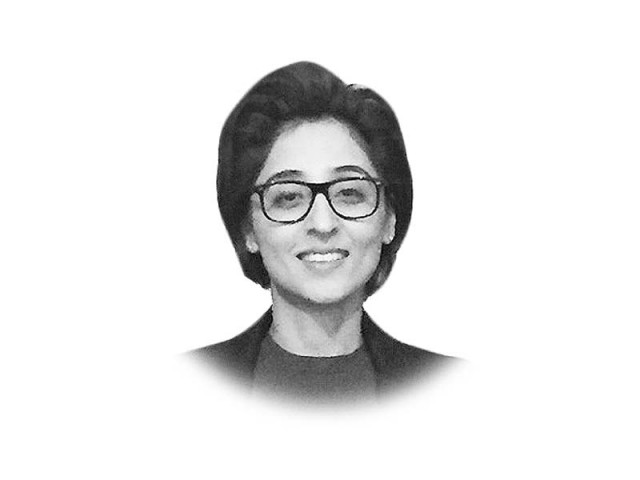Technology & innovation to the rescue
Focus of NGOs should be to automate; digitise, so as to accelerate change in overcoming society’s colossal...

The writer is a futures researcher and has a master’s degree from Institut De Hautes Études Internationales Et Du Développement in Geneva. She is the founder and president of the NGO, AGAHI
The efforts of individuals such as Dr Adib Rizvi and Abdul Sattar Edhi are commendable. When we compare their value-based development models to the models of Islamabad, we see shocking disappointments in the latter. Despite the fact that children die every day in Thar, there is no visible government-led intervention in this area. The horrific response of the PML-N to the Kasur child sexual abuse incident last year is yet another example of the sheer inability of the government to deal with high-profile disasters. The media coverage of socioeconomic constraints and inhumane conditions in Sindh and southern Punjab is meagre at best, and the impression one gets from the conduct of the judicial system is that of a state instrument which has looked the other way, capitulating to its own inefficiencies.
The donor community is usually driven by strategic and economic interests. The capacity of the development sector in Pakistan to institutionalise public sector service delivery is limited despite an influx of foreign funding being funnelled into the country. This has not helped the market expand to its full potential; therefore the impact of the projects initiated by the donor community has been narrow as they are not integrated in the national economic grid. There is a disconnect amongst the ministries of planning and finance, and the economic affairs division.
The diminishing trust between state and society is resulting in weakening societal norms which are challenging economic and political stability. This is leading to social unrest and violence. While governments globally are eager to embrace the Sustainable Development Goals, at the same time, several have failed to meet the benchmarks set forth by the Millennium Development Goals — Pakistan being one of them. Progress has been insufficient to meet the mounting needs of a growing population.
The responsibility-accountability arc remains on the back burner for Pakistan. This void is often overcome by the non-profit sector or civil society organisations. However, these segments of society need to become even more dynamic and resilient than they already are as the silos within which they usually function is usually off the government agencies’ grid.
In order to function in these highly uncertain circumstances, development organisations in Pakistan need to become futures-centric, i.e., explore various alternative scenarios that may evolve in the future depending on how things pan out in the present. The components leading to such a framework are based on three pillars: 1) openness; 2) values-based; and 3) transformative. Development futurists need to explore the adoption of emerging technologies, keeping a close eye on social trends, anticipating change and effectively dealing with the unforeseen by reformulating responses towards complex setbacks in a precipitously changing environment. Those not incorporating futures studies and continuing to photo-shop reality will prove ineffective. Knowledge entrepreneurs will have a critical role in drawing up the reality of the world in the future and it is the development of such entrepreneurs that we need to focus on in Pakistan.
Published in The Express Tribune, February 9th, 2016.
Like Opinion & Editorial on Facebook, follow @ETOpEd on Twitter to receive all updates on all our daily pieces.















COMMENTS
Comments are moderated and generally will be posted if they are on-topic and not abusive.
For more information, please see our Comments FAQ